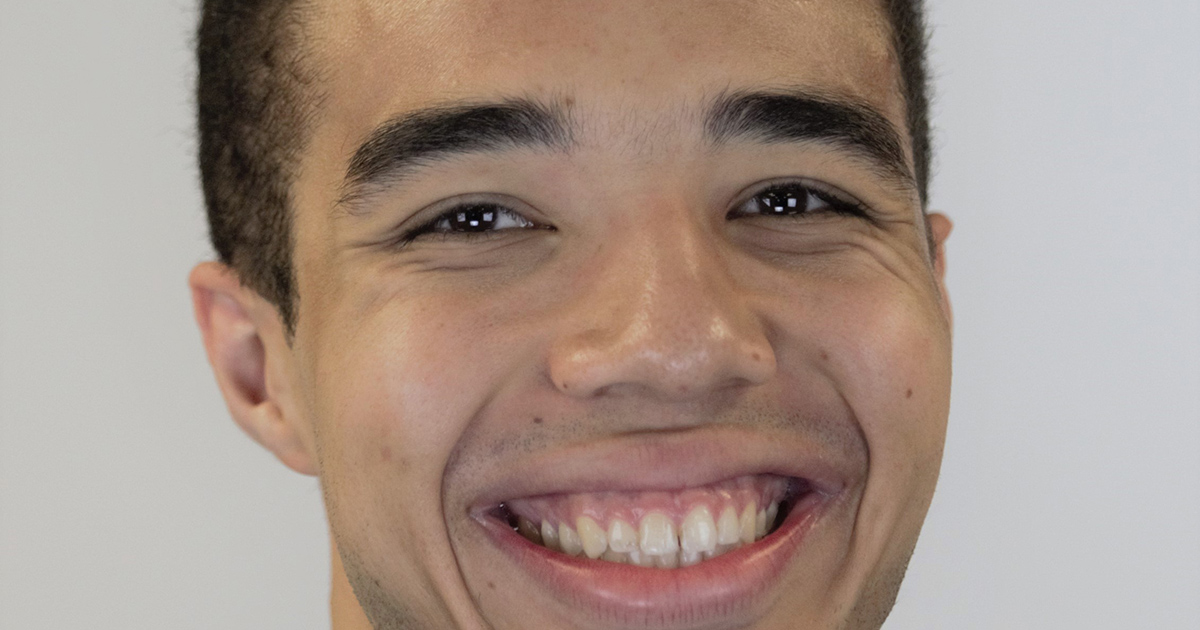The ruminations of a teenage college applicant can often sound callow. But not always. As many a college essay proves, such thoughts can be utterly inspirational. The same can be said of essays submitted by applicants to the Alumni Association LEAD Scholars Program.
In celebration of the 10th anniversary of the program, we are sharing just a few of the many essays submitted. In this 10-part series, you’ll read of the experiences of those who come from relatively sheltered backgrounds to those who have had to deal with more than their share of adversity.
In this fourth installment, Matthew Williams, ’17, describes how he came to accept his sister’s mental health disorder. Now in his second year at U-M’s Law School (where he has been awarded a full scholarship), Matthew is an active member in both the Black Law Students Association and the Asian Pacific American Law Students Association. He also is an academic tutor to first-year students in the Ross School of Business and worked pro bono last summer at the Law School’s Low Income Tax Clinic.
Growing Pains
If I were to choose one obstacle I had to overcome, it would be what happened in my life four years ago. I grew up that year. Before that, I was foolish and thought I knew everything. I knew nothing, and I learned how little I knew, the year my sister was diagnosed with schizophrenia.
It has never been easy for our family—eight kids in a tough economy is hard. But we had always been free of real discomfort. That changed. Suddenly, we were embroiled in serious hardship. It made me angry. I was mad at my parents for having to spend so much time supporting my sister, angry at the world for letting this happen, and angry with my sister for being ill. I was also angry with myself for being angry.
It was completely irrational, but I did not care about rationality at the time. Later, I saw things differently. Life is still tough, but I have learned to appreciate what the experience has done for me. It made me grow more mature and willing to lead. I now have a greater appreciation for my parents. I have watched them maintain a happy family, despite this monumental challenge. Facing my sister’s mental illness, I also developed drive and independence. I don’t know if one day I might also develop schizophrenia, so I cannot afford to procrastinate when opportunities come my way.
Because of my sister, I began to get involved in community service. As a result, I had a chance to sit on the Southfield (Michigan) Public Library Junior Library Board and to do a public service announcement for the League of Women Voters Oakland Area. Later, I had the chance to promote diversity in my school and community. I joined the Oakland County Diversity Coalition to serve my area and was able to meet with experts from U-M. My school even sent me to participate in the statewide Symphony of Change Student Leadership Conference to promote equality through diversity and community service.
Most importantly, I developed a greater compassion for people. After facing madness every day, everything changes. You cannot tell a person by their cover, and every time I see a homeless person or someone acting strangely, I think of my sister.
Dealing with mental illness makes you realize that everyone has issues. I remember that now each time I see someone sad. I no longer think less of them. My sister’s illness is humbling. It reminds me I am still fallible. I do not know everything. I still get angry, and I still make mistakes. I cannot say I would wish an experience like this on anyone, but I will say this: I am better for it. I owe the person I am today to that event and for that I am thankful. I will bring that new perspective to U-M and that is valuable.
The LEAD Scholars Program provides scholarships to black, Latino, and Native American students who have been accepted into the U-M. Visit umalumni.com/LEAD to learn how you can support the program and, thus, help create a more diverse campus.





